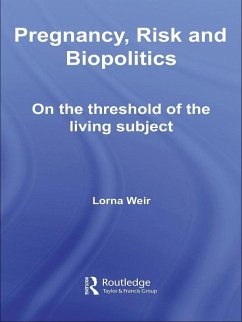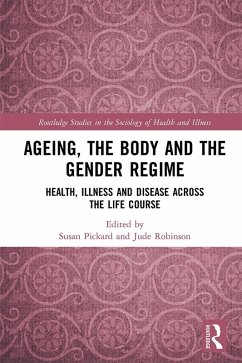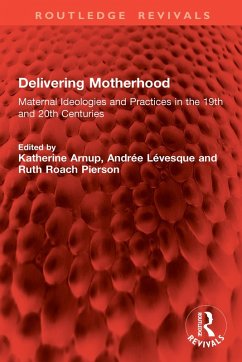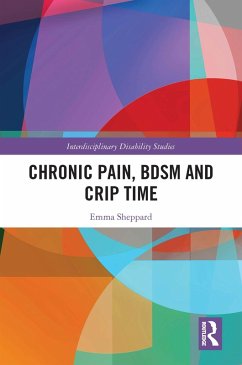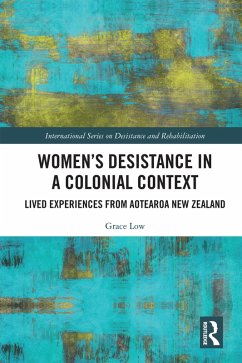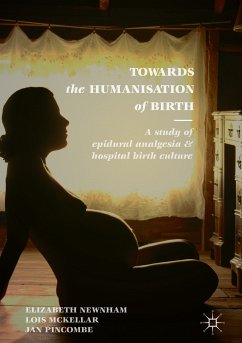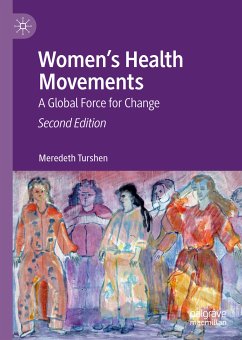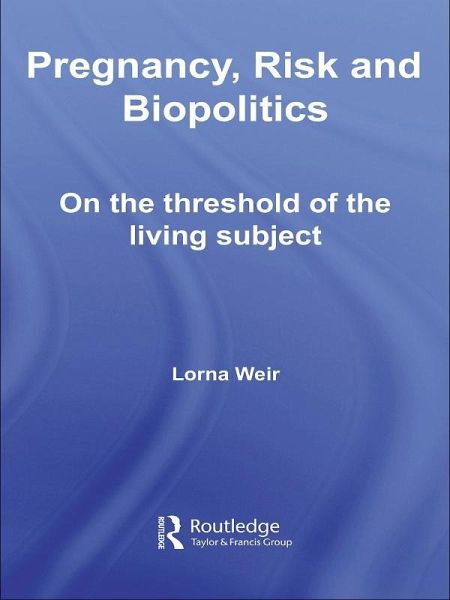
Pregnancy, Risk and Biopolitics (eBook, PDF)
On the Threshold of the Living Subject
Versandkostenfrei!
Sofort per Download lieferbar
51,95 €
inkl. MwSt.
Weitere Ausgaben:

PAYBACK Punkte
26 °P sammeln!
Traditionally, Euroamerican cultures have considered that human status was conferred at the conclusion to childbirth. However, in contemporary Euroamerican biomedicine, law and politics, the living subject is often claimed to pre-exist birth. In this fascinating book Lorna Weir argues that the displacement of birth as the threshold of the living subject began in the 1950s with the novel concept of 'perinatal mortality' referring to death of either the foetus or the newborn just prior to, during or after birth.Weir's book gives a new feminist approach to pregnancy in advanced modernity focusing...
Traditionally, Euroamerican cultures have considered that human status was conferred at the conclusion to childbirth. However, in contemporary Euroamerican biomedicine, law and politics, the living subject is often claimed to pre-exist birth. In this fascinating book Lorna Weir argues that the displacement of birth as the threshold of the living subject began in the 1950s with the novel concept of 'perinatal mortality' referring to death of either the foetus or the newborn just prior to, during or after birth.
Weir's book gives a new feminist approach to pregnancy in advanced modernity focusing on the governance of population. She traces the introduction of the perinatal threshold into child welfare and tort law through expert testimony on foetal risk, sketching the clash at law between the birth and perinatal thresholds of the living subject. Her book makes original empirical and theoretical contributions to the history of the present (Foucauldian research), feminism, and social studies of risk, and she conceptualizes a new historical focus for the history of the present: the threshold of the living subject.
Calling attention to the significance of population politics, especially the reduction of infant mortality, for the unsettling of the birth threshold, this book argues that risk techniques are heterogeneous, contested with expertise, and plural in their political effects. Interview research with midwives shows their critical relation to using risk assessment in clinical practice. An original and accessible study, this book will be of great interest to students and researchers across many disciplines.
Weir's book gives a new feminist approach to pregnancy in advanced modernity focusing on the governance of population. She traces the introduction of the perinatal threshold into child welfare and tort law through expert testimony on foetal risk, sketching the clash at law between the birth and perinatal thresholds of the living subject. Her book makes original empirical and theoretical contributions to the history of the present (Foucauldian research), feminism, and social studies of risk, and she conceptualizes a new historical focus for the history of the present: the threshold of the living subject.
Calling attention to the significance of population politics, especially the reduction of infant mortality, for the unsettling of the birth threshold, this book argues that risk techniques are heterogeneous, contested with expertise, and plural in their political effects. Interview research with midwives shows their critical relation to using risk assessment in clinical practice. An original and accessible study, this book will be of great interest to students and researchers across many disciplines.
Dieser Download kann aus rechtlichen Gründen nur mit Rechnungsadresse in A, B, BG, CY, CZ, D, DK, EW, E, FIN, F, GR, HR, H, IRL, I, LT, L, LR, M, NL, PL, P, R, S, SLO, SK ausgeliefert werden.




